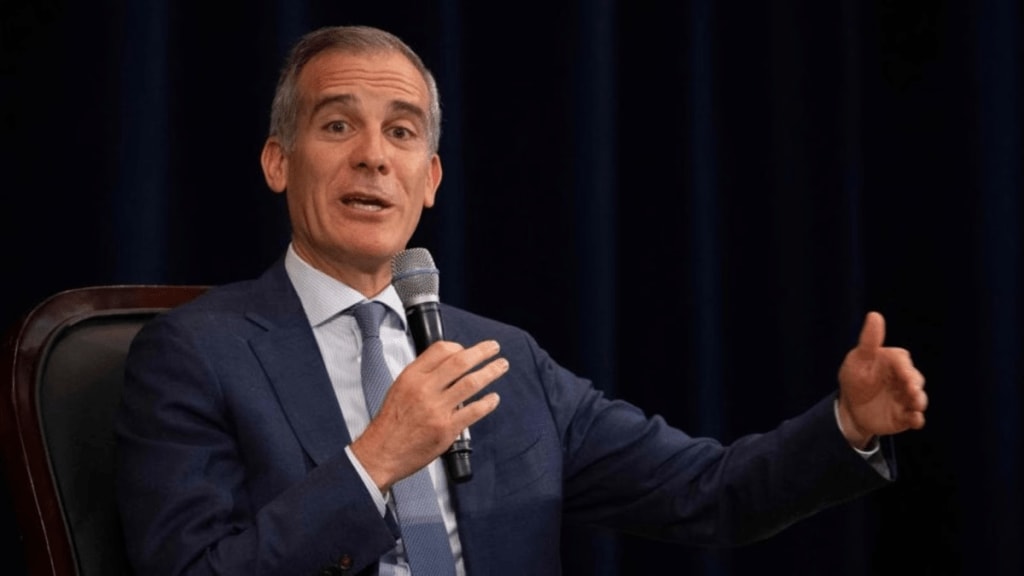Prime Minister Narendra Modi’s recent visit to Moscow, within a month of his third term in office, has stirred significant reactions in the United States. Modi’s meeting with Russian President Vladimir Putin has challenged the Western intent to isolate Putin, highlighting the intricate balance of international relations. This visit has prompted key statements from the US, stressing the importance of the US-India strategic partnership.
US-India Defence Partnership: A Critical Alliance
Two days after Modi’s visit to Russia, US Ambassador Eric Garcetti underlined the significance of the US-India defence partnership, describing it as one of the most consequential in the world. However, he suggested that this relationship could not be taken for granted, likening it to a marriage that requires constant effort and mutual understanding. Garcetti stated, “Don’t take the relationship for granted, but enjoy it every day. Pay something into it. It’s like a marriage. Let’s listen to each other in this relationship.”
India’s Balancing Act with Russia
The White House has been closely monitoring the bilateral agreements between India and Russia. Despite concerns about India’s relations with Russia, the US has reiterated that India remains a strategic partner. Pentagon Press Secretary Major General Pat Ryder highlighted the long-standing relationship between India and Russia, while affirming that the US continues to engage in open and frank dialogue with India regarding its international relationships, including with Russia. Ryder stated, “India and Russia have had a long-standing relationship. From America’s point of view, India is a strategic partner, with whom we continue to have full and frank dialogue, including its relations with Russia.”
Diplomatic Concerns and Reactions
US State Department spokesman Matthew Miller revealed that the US has privately expressed its concerns to the Indian government about its relations with Russia. However, this has not altered the strategic partnership between the US and India. Major General Pat Ryder also commented on the potential use of Modi’s visit by Putin to project that he is not isolated. He noted that despite this narrative, Russia’s actions, particularly the invasion of Ukraine, have significantly isolated it from the global community.
In response to a media query about Putin’s isolation, Ryder pointed out that Modi had also recently met Ukrainian President Volodymyr Zelensky and assured him of India’s support for a peaceful resolution to the Ukraine conflict. Ryder expressed hope that India would support efforts to establish a lasting and just peace for Ukraine and impress upon Putin the importance of adhering to the UN Charter and principles of sovereignty and territorial integrity. “Prime Minister Modi also recently met Ukrainian President Zelensky and assured him that India will continue to do everything in its power to support a peaceful solution to the Ukraine war,” Ryder added.
Calls for a Unified Stance on Peace
White House Press Secretary Karine Jean-Pierre echoed these sentiments, stating that all countries, including India, should support efforts for a lasting and just peace in Ukraine. She emphasized that only President Putin can end the war he started, highlighting the potential role of India’s long-standing relationship with Russia in influencing Putin to end the conflict. “We believe that India’s long-standing relationship with Russia gives it the ability to end President Putin’s Ukraine war,” Jean-Pierre said. “It is President Putin’s responsibility to end the war. President Putin started the war and President Putin can end the war.”
Strategic Autonomy in Times of Conflict
Ambassador Garcetti spoke on the notion of strategic autonomy, acknowledging India’s preference for maintaining such autonomy. However, he noted that in times of conflict, the concept of strategic autonomy becomes less tenable. Garcetti urged both nations to trust each other and act together in principle against war, emphasizing that the interconnectedness of the world means no conflict is distant or isolated. “I know India likes its strategic autonomy and I respect that. But in times of conflict, there is no such thing as strategic autonomy,” Garcetti said.
Garcetti highlighted the importance of the US-India defence partnership, pointing out that India is now the number one partner for the US in military exercises. He mentioned the Malabar exercise off the Australian coast as an example of the Quad—comprising India, the US, Japan, and Australia—coming together in a strategic partnership to uphold a “rules-based order.” “The US-India defence partnership stands among the most consequential in the world,” he said.

